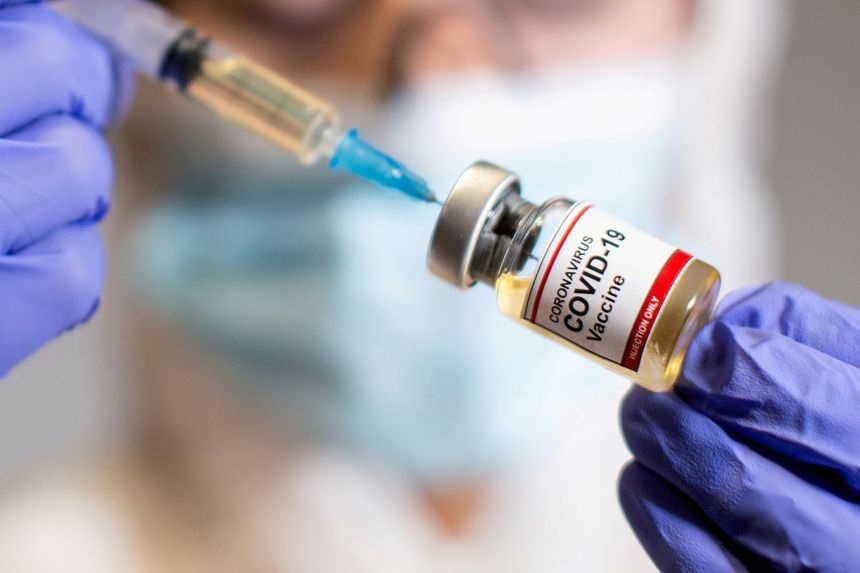Study finds no link between Covid-19 vaccines and birth defects in newborns

The findings offer strong reassurance to expectant mothers about the safety of vaccination. At the beginning of the pandemic, there were widespread fears that COVID-19 vaccines could harm unborn babies.
A new study has confirmed that receiving an mRNA COVID-19 vaccine during early pregnancy does not increase the risk of birth defects in newborns.
The findings offer strong reassurance to expectant mothers about the safety of vaccination. At the beginning of the pandemic, there were widespread fears that COVID-19 vaccines could harm unborn babies.
More To Read
- Government unveils national action plan to boost hazardous threat response
- Long Covid’s lasting damage: Why many South Africans still struggle with fatigue, anxiety and memory loss
- Viral infections linked to higher risk of heart attacks and strokes
- Study finds Covid-19 infection during pregnancy may affect child brain development
- Study finds Covid-19 mRNA vaccines may boost cancer immunotherapy
- MPs fault procurement authority for weak laws on COVID-19 tenders
Some families and healthcare providers were cautious, particularly after hearing reports of birth defects such as heart or limb abnormalities in infants born to vaccinated mothers. However, this new research, published in JAMA Network Open, provides clear evidence that these concerns were unfounded.
The study, one of the largest of its kind, analysed data from more than half a million babies born in France. Researchers used the national Mother-Child EPI-MERES Register to track live births from pregnancies that began between April 2021 and January 2022, with follow-up continuing through 2024.
About a quarter of the infants were exposed to at least one dose of an mRNA vaccine, either Pfizer-BioNTech or Moderna, during the first trimester, which is the most critical phase of pregnancy when major organs begin to develop.
When comparing outcomes between vaccinated and unvaccinated mothers, researchers found no difference in the rate of major birth defects. Neurological, heart, kidney, and other organ-related malformations occurred at nearly identical rates. For every 10,000 births, around 177 babies in the vaccinated group and 179 in the unvaccinated group had major congenital anomalies, a statistically insignificant difference.
The study examined 75 different types of congenital defects affecting 13 body systems, including the brain, heart, kidneys, digestive system, limbs, and urinary tract. None of these categories showed an increased risk among vaccinated mothers.
Even conditions previously suspected to be linked to vaccination, such as heart or kidney defects, were not connected. The odds of ventricular and atrial septal defects (holes in the heart) were equal between both groups, while kidney-related conditions such as hydronephrosis were slightly lower among vaccinated mothers, though this difference was not statistically meaningful.
Researchers also reviewed maternal factors such as age, income level, and folic acid intake, finding no variation in outcomes. The stillbirth rate was identical between vaccinated and unvaccinated mothers, standing at 0.4 per cent for both groups, ruling out concerns about an increased risk of pregnancy loss due to vaccination.
The findings also highlight how vaccination helps protect both mothers and babies from serious complications caused by COVID-19 infection. Pregnant women who contract the virus face higher risks of severe illness, hospitalisation, and preterm birth, but vaccination reduces these risks significantly.
Health experts have welcomed the study, noting that it adds to growing global evidence confirming that mRNA vaccines are safe during pregnancy, including the early stages. Similar findings have been reported in studies from the United States, Canada, and several European countries.
However, the researchers acknowledged certain limitations.
Because the data focused mainly on live births, very early miscarriages or pregnancy terminations related to severe fetal anomalies may not have been captured. In addition, extremely rare defects might remain undetected despite the large sample size. Nevertheless, the consistency of the data and the large number of cases make the findings highly reliable.
The study concludes that mRNA COVID-19 vaccines are safe for pregnant women and do not increase the risk of major congenital malformations. It provides reassurance to millions of women who received the vaccine during early pregnancy and supports current health recommendations encouraging vaccination to protect both mother and baby.
Health authorities and medical professionals continue to emphasise that COVID-19 vaccination is an important tool for preventing severe illness in mothers and offers potential benefits to newborns through the transfer of protective antibodies during pregnancy. Overall, the results affirm that vaccination during early pregnancy is both safe and beneficial for maternal and infant health.
Several other studies conducted after the COVID-19 pandemic also suggested that there is no link between COVID-19 vaccination during pregnancy and birth defects or harm to newborns. Another major study, carried out in Sweden and Norway, confirmed these findings.
One study, "Neonatal Outcomes After COVID-19 Vaccination in Pregnancy", published in JAMA Paediatrics in 2022, involved more than 94,000 infants, making it one of the largest and most reliable studies on this subject in Europe.
Researchers sought to determine whether receiving an mRNA COVID-19 vaccine, such as those from Pfizer or Moderna, during pregnancy could pose any risks to the baby. After carefully analysing the data, they found no connection between vaccination and health issues in newborns. There was no increased risk of brain injury, oxygen problems at birth, or newborn deaths.
Interestingly, the study found that babies born to vaccinated mothers sometimes had slightly better health outcomes than those born to unvaccinated mothers. Experts believe this is because the vaccine protects mothers from severe COVID-19 infection.
When a pregnant woman gets seriously ill with COVID-19, she is more likely to experience complications like preterm birth or low oxygen levels, which can affect the baby. By preventing these infections, vaccination helps both the mother and the child.
Health experts from the World Health Organisation (WHO) and the US Centres for Disease Control and Prevention (CDC) also recommend vaccination for pregnant women, saying it protects both mother and baby from the dangers of COVID-19.
The Nordic study supports earlier research, including from France published in JAMA Network Open, which also found no link between COVID-19 vaccination in early pregnancy and birth defects.
The World Health Organisation (WHO) estimates that about 6 per cent of babies globally are born with a congenital disorder, meaning around six out of every 100 newborns are affected by conditions ranging from mild to severe.
Global data further show that in 2019, birth defects were responsible for about 2.9 deaths per 1,000 live births, with the proportion of deaths among children under five due to these conditions continuing to rise.
In many low- and middle-income countries, including Kenya, the true scale of the problem may be higher, as limited birth-defect monitoring systems often lead to significant underreporting.
Top Stories Today












































